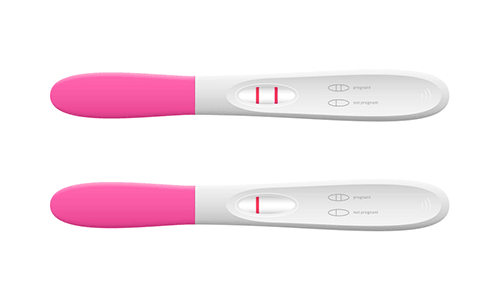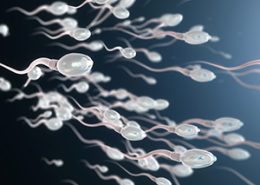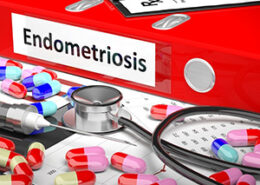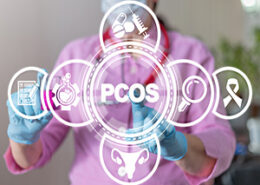What is Infertility?
Infertility is defined as the inability to achieve pregnancy after one year of regular unprotected intercourse, however in female partners older than 35years; infertility is defined as not to be achieving pregnancy after 6 months of unprotected intercourse. in this article, you can learn more about what is infertility, factors that can affect infertility, infertility in men and women, and other things that are related to infertility.
How common is infertility?
The studies show that 10 to 15% of couples suffer from infertility problems. (On average one out of every 7 couples has an infertility problem), therefore it has become one of the most common diseases for couples between 20 to 45 years old. However, fortunately, with the significant improvements within the last three decades in reproductive technology and infertility treatments, infertile couples are hoping for childbearing more than ever before.

What factors affect infertility?
Different factors can affect the couple’s fertility. In general; infertility is due to the disorder in males and females.
Female Factors of Infertility:
-
Ovulatory Dysfunction
Studies show that about 40% of couples are infertile due to ovulatory dysfunction. If a woman does not ovulate once a month, she may face difficulty in conceiving.
Disorders such as PCOS, thyroid disease, and other hormonal disorders can affect ovulation and lead to infertility. Women with overweight or underweight or having irregular menstrual periods usually have problems with ovulation and fertility.
Learn more about PCOS and PCOS effect on fertility: Effect of PCOS on infertility
-
Damaged or blocked fallopian tubes
Fallopian tubes are also known as uterine tubes. Uterine tubes are two tubes attached to the uterus in which sperm and ovum are usually combined. Blocked or damaged tubes can lead to infertility or ectopic pregnancy.
Patients affected with endometriosis, and those having pelvic surgery or have sexually transmitted diseases are more likely to have damaged tubes. Fallopian tubes obstruction and adhesions around the tubes and ovaries are factors of 30-35% of infertility. (Learn more about endometriosis: Endometriosis and Fertility)
-
Uterine and cervical disorders
The condition of the cervix which is the lower part of the uterus can affect infertility, although this is rarely the only reason for infertility. Uterine problems can interfere with implantation or increase the probability of abortion. Damaged uterine tissue, uterine polyps, uterine fibroids, or abnormal uterine shape are possible uterine disorders.
-
Female age
The Woman’s age has many impacts on her ability to have childbearing, especially if she is in her 30s and 40s. The chance of fertility per month is 25 to 30% for a healthy woman in her 20s or early 30s, but this chance is reduced at age 40 to 10% or less.

Learn more about infertility in women: Some Possible Causes of Female Infertility
Male Factors of Infertility
About one-third of infertility cases are due to male infertility. In the remaining of one- third of cases, infertility occurs because of a combination of male and female factors. Male infertility can be due to an inability to produce or ejaculate sperm. The semen quality is also important and it is evaluated by the amount, motility, and shape of the sperm. Some factors can affect sperm quantity or quality. For example, diabetic men may have a disorder in ejaculation, or men with cystic fibrosis may have an obstruction that prevents ejaculation or sperm release. Learn more about sperm problems and their effect on male infertility: Sperm problems in infertility
For more information about the causes of infertility in men, you can read this article: Factors Causing Infertility in Men
.
Unexplained infertility
In some cases (more than 10% of infertile couples), there is no obvious reason for infertility, which is idiomatically referred to as unexplained infertility.
Methods of Infertility diagnosing
From the beginning step of infertility assessment, the causes of infertility should be considered in both men and women. Therefore; both couples should be present during the assessment and visits. Each couple may present information and views that the other does not provide or remember. Moreover, the presence of both couples in each session of the visit gives them the possibility of a better understanding of the information, options, and recommendations offered by the doctor in order to receive the answers to each of their questions directly and discuss them. Consultation with an infertility specialist during the infertility treatment process is essential and it should be considered at various stages of evaluation and treatment. Learn more about Iranian fertility center: Best Iranian fertility clinic
Regular visits not only help to review, evaluate the results, and provide the necessary recommendations but also ensure the couple’s confidence in settling all medical, emotional, and financial needs in a timely manner. Learn more about treatment and admission in HayatMedTour: Admission and Treatment process of patients
Basic evaluation and management the infertile couples
Assessment of the infertility causes
- This stage begins with a detailed history and physical examination. in more cases, the specific causes of infertility are identified by existing signs and symptoms. Therefore, based on the most likely factor or factors of infertility, the treatment process is initiated.
- The initial workup of the infertile couples consisted of; Pap smear, blood group, RH factor, Indirect Coombs in women with negative blood group, anti-rubella antibodies in serum, and if necessary, screening for sexually transmitted infections.
- As 35% of infertility is due to male factors, so the causes of male infertility should be investigated, and semen should be analyzed in the primary assessments. If the initial results of semen are ambiguous, further analysis should be performed by referring to the urologist. Learn more about fertility tests and analyses in men: Fertility Tests in Men
- In addition to examining male factors, female factors must also be considered including as below:
- Ovarian Factor: The occurrence or lack of ovulation can be determined in different ways. All of the tests are based on hormone events that determine the normal cycle of ovulation. All of these tests are useful and not necessarily the best. If anovulation is the only problem for infertility, most couples can only become Pregnant by stimulating ovulation. Learn more about infertility tests for women: Fertility Tests for Women
- Uterine factor: The anatomical and functional disorders in the uterus are a relatively common cause of infertility and always should be considered in evaluations. There are various methods for assessing the uterus and each method has its advantages and disadvantages. Each evaluation method is selected depending on the individual needs and requirements
- Tubal Factor: The tubal disorders and the adhesion around the tubes and ovaries can be assessed by specific tests.
- If the overall infertility assessments do not identify the cause of infertility, it is called unexplained infertility. In patients suffering from this type of infertility, the following criteria are necessary:
- Normal spermogram
- Normal ovulation
- Normal uterine cavity
- Open fallopian tubes
One of the most likely causes of infertility is a disorder in the gametes or fetal implantation which there is no valid test to detect. But undoubtedly, most cases of unexplained infertility are due to a natural decline in infertility as a result of aging, which is more common in women over 35 years.

When should I refer a doctor for infertility treatment?
In general, in case a couple fails to become pregnant within 12 months of trying to conceive, they should refer to a doctor to determine the reasons for infertility. Females older than 35 years should refer to an infertility specialist after 6 months of trying and not getting pregnant. If a female under 35 years old has a family history of premature menopause or other problems that can cause premature menopause, they should refer to an infertility specialist as soon as possible for infertility counseling. Learn more about pregnancy in premature menopause: Menopause and getting pregnant
In cases of irregular menstruation, the risk of fallopian tube injury; a history of diseases such as testicular problems in male childhood, and treatment with anticancer drugs, the infertile couples should be examined for appropriate evaluations.
For more information on the infertility treatment process and fertility treatment methods like IVF in Iran and IUI in Iran, you can contact The HAYAT professionals through the free consultation page.
Frequently Asked Questions about Infertility, Symptoms and Causes
What is secondary infertility?
Secondary infertility occurs if the couple is no longer able to conceive again or maintain subsequent pregnancies after one successful pregnancy.
Secondary infertility can be caused by male infertility or female infertility.
Aging, complications of previous pregnancy, weight gain, use of some drugs, history of some surgeries, suffering from some diseases, sperm production disorder, ovulation disorder, alcohol consumption, and smoking are among the causes of secondary infertility in men and women.
Secondary infertility can be treated like primary infertility. Drug treatments and the use of infertility treatment methods such as IUI, IVF, etc. can help to treat secondary infertility.
What factors increase the risk of male infertility?
- Smoking
- Consumption of alcoholic beverages
- Overweight and obesity
- Having some infections
- Exposure to toxins
- Testicular temperature increases by sitting a lot, going to the Jacuzzi, or in some jobs such as bakeries and driving.
- History of vasectomy or surgery in the abdomen and pelvis
- History of injury to the testicles
- The Undescended testicle
- History of infertility in the family
- Suffering from malignant tumors and some chronic diseases
- History of some treatment procedures such as radiation therapy and chemotherapy
What are the causes of infertility in women who have previously had a successful pregnancy?
- Increasing age
- Having polycystic ovary syndrome
- Suffering from endometriosis
- Obstruction of uterine tubes
- Uterine problems
- Disturbance of hormonal balance in the body
- Decreased ovarian reserve
- Problems caused by previous pregnancy
- Repeated abortion
- Malnutrition
- Taking some medications










